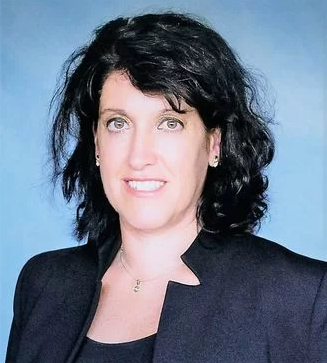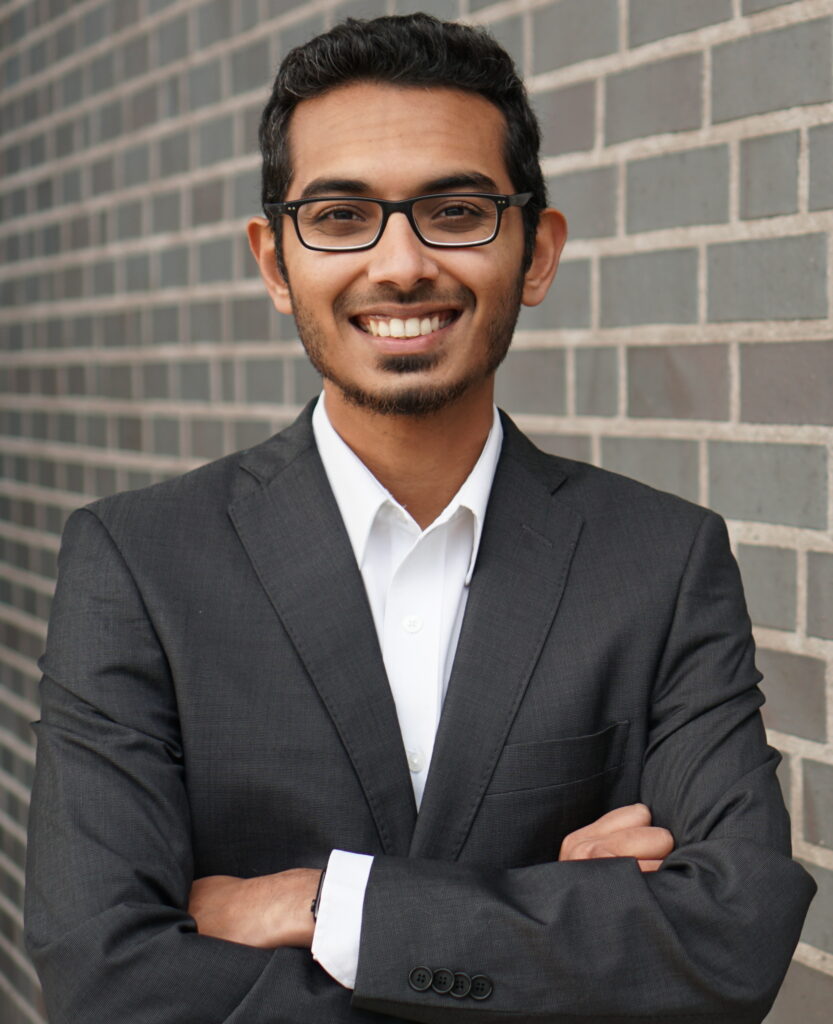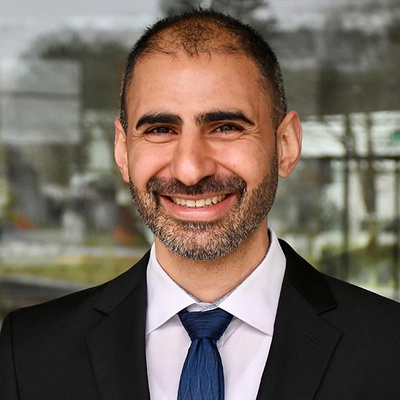2025 GAS Keynote Speakers
Prof. Cristina Olaverri-Monreal
Biography:
Cristina Olaverri-Monreal is a full professor and head of the Department Intelligent Transport Systems at the Johannes Kepler University Linz, in Austria. Prior to this position, she led diverse teams in the industry and in the academia in the US and in distinct countries in Europe.
She served as the president of the IEEE Intelligent Transportation Systems Society (IEEE ITSS) for the years 2022 and 2023. She is the IEEE Division IX Director-Elect and member of the 2026-2027 IEEE Board of Directors. She also holds the position of chair for the Technical Activities Committee (TAC) on Human Factors in Intelligent Transportation Systems and is the founder and chair of the Austrian IEEE ITSS chapter. Prof. Olaverri is a senior/associate editor and editorial board member of several journals in the field, including the IEEE ITS Transactions and IEEE ITS Magazine.
She received her PhD from the Ludwig-Maximilians University (LMU) in Munich in cooperation with BMW. Her research aims at studying solutions for an efficient and effective transportation focusing on minimizing the barrier between users and road systems. To this end, she relies on the automation, wireless communication and sensing technologies that pertain to the field of Intelligent Transportation Systems (ITS).

Title: How Safety and Interaction Shape Automated Vehicles Evolution
Abstract
Self-driving vehicles are reshaping the future of transportation. Utilizing cutting-edge technologies like artificial intelligence, sensors, and real-time data analysis, they aim to improve efficiency, safety, and sustainability, surpassing the performance of conventional vehicles. While automation can handle numerous driving functions, the interaction between automated systems, and other road users is vital for ensuring overall safety and effectiveness. In this context, human involvement is still crucial to guarantee well-informed decisions, an area that will be explored further in this presentation.
Prof. Abhinav Valada
Biography:
Abhinav Valada is a Full Professor at the University of Freiburg, where he directs the Robot Learning Lab. He is affiliated with the Department of Computer Science, the BrainLinks-BrainTools center, and a founding faculty of the ELLIS Unit Freiburg. He received his Ph.D. from the University of Freiburg and his M.S. in Robotics from Carnegie Mellon University. Abhinav’s research lies at the intersection of robotics, machine learning, and computer vision, addressing fundamental problems in perception, state estimation, and decision making to enable robots to operate reliably in complex and diverse open-world settings. For his research, he received the IEEE RAS Early Career Award in Robotics and Automation, IROS Toshio Fukuda Young Professional Award, NVIDIA Research Award, IROS Best Paper on Cognitive Robotics, among others. Abhinav is a DFG Emmy Noether AI Fellow, Scholar of the ELLIS Society, IEEE Senior Member, and Co-Chair of the IEEE RAS Technical Committee on Robot Learning. He is a Senior Editor for IEEE Robotics and Automation Letters as well as an Associate Editor and Area Chair for multiple conferences and journals. Many aspects of his research have been prominently featured in wider media such as the Discovery Channel, NBC News, Business Times, and The Economic Times.

Title: Robot Learning for Open-World Autonomy
Abstract:
A long-standing goal has been to create intelligent robots that can learn from the world around them to assist humans in everyday tasks, from domestic chores to transportation. However, most robots today are still tailored for specific tasks and controlled environments. Achieving truly ubiquitous robot autonomy requires learning methods that move beyond closed datasets and fixed policies, enabling robots to generalize and adapt online in open-world settings. In this talk, I will present our efforts toward learning open-world robot autonomy, from representations to actions, that enable robots to perform everyday tasks in real open-world environments. I will discuss our recent advancements in leveraging foundation models and continual online learning to commonsense reasoning through language and vision. Finally, I will highlight our ongoing work on fairness in robot learning to ensure safe, trustworthy, and responsible innovation, which is crucial for the open world and for fostering acceptance in society.
Prof. Bassam Alrifaee
Biography:
Until February 2024, Prof. Alrifaee was a Senior Researcher and Lecturer at the Chair of Informatik 11 – Embedded Software (led by Prof. Stefan Kowalewski) in the Department of Computer Science at RWTH Aachen University, Germany. He is the founding director of the Cyber-Physical Mobility (CPM) group and the CPM Lab at RWTH. In 2023, he held a visiting scholar position at the Information and Decision Science Laboratory (led by Prof. Andreas A. Malikopoulos) in the Department of Mechanical Engineering at the University of Delaware, USA. Prof. Alrifaee received his Diploma degree in Computer Science from the Technical University of Ilmenau, Germany, and his PhD from the Institute of Automatic Control (led by Prof. Dirk Abel) in the Department of Mechanical Engineering at RWTH in 2010 and 2017, respectively.
Prof. Alrifaee was the recipient of the starting grant from the German Research Foundation (DFG) Research Training Group 1856: Integrated Energy Supply Modules for On-Road Electromobility. He has acquired several DFG research grants, including projects in the Priority Program 1835: Cooperatively Interacting Automobiles, in the Collaborative Research Centre Transregio 339: Digital Twin of the Road System – Physical-Informational Representation of the Future Road System, as well as an individual research grant. Prof. Alrifaee leads a project funded by the German Federal Ministry for Digital and Transportand has led two projects funded by the German Federal Ministry of Education and Research as well as projects with industrial partners. He is a recipient of a teaching grant from the Exploratory Teaching Space of RWTH, and his PhD student Patrick Scheffe was awarded the Young Research Award 2023 by the Intelligent Transportation Systems Society Germany Chapter for his outstanding work in the CPM Lab. Prof. Alrifaee received the Best Associate Editor Award in 2023 for his editorial service in the IEEE Transactions on Intelligent Vehicles and holds Senior Member status within the IEEE.

Title: Intelligence in Motion: Distributed Control and Architectures for Future Mobility
Abstract:
Modern mobility systems are evolving into complex, intelligent networks of autonomous agents. As vehicles, infrastructure, and digital twins become increasingly interconnected, the challenge shifts from achieving individual autonomy to orchestrating distributed systems. As vehicles become more intelligent and connected, their safety and efficiency will depend on how effectively distributed decision-making scales while remaining reliable.
Our research combines methods from artificial intelligence and control theory to enable adaptive, safe, and efficient behavior in connected and automated vehicles (CAVs). We investigate approaches such as multi-agent reinforcement learning, data-driven predictive control, cooperative sensor data fusion, and service-oriented software architectures to advance this vision.
This talk explores how distributed control and software architectures enable scalable decision-making for future mobility. We investigate how CAVs learn from data, plan jointly, and coordinate with others in real time while maintaining strict safety guarantees. This enables vehicles not only to plan their motion but also to anticipate and coordinate with others dynamically. Finally, we highlight the Cyber-Physical Mobility Lab (CPM Lab)—an open-source, reproducible platform for CAV research—demonstrating how open science and collaboration accelerate sustainable autonomy and mobility.
